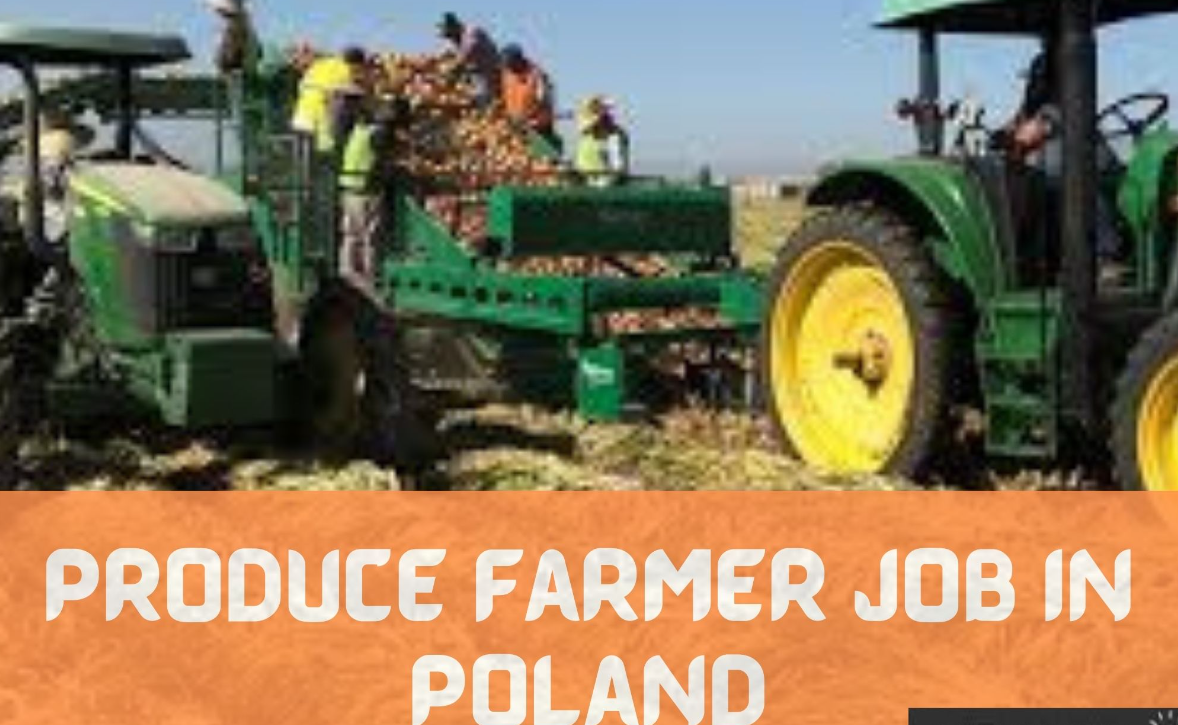FARM WORKER JOBS IN POLAND 2022
If you want to work in Poland as a farm worker, you can get a free work visa. However, you should have a police clearance certificate, no criminal records, and a current employment certificate. In addition, you need to present a resident ID card. As a farm worker, you’ll be paid an hourly wage and overtime. You’ll also have free access to bathroom facilities, kitchen, and utilities.

Free work visa jobs in poland 2022
If you’re interested in working as a farmer in Poland, you’ve come to the right place. The country’s labour market has seen significant changes in recent years. As the country grows, it needs to attract foreign workers to help with the labor shortage. The Polish Ministry of Family, Labor, and Social Policy recently commissioned a research on short-supply employees.
The first step in pursuing a farm-related occupation in Poland is to obtain a work permit. Work permits are issued by the local government head of land, or Voivode. The work permit is only valid for the company or organization that applies for it. If you don’t have an employer in the country, you may need to apply on your own to find a job.
In addition to farm jobs, you can also look for factory jobs in Poland. These positions often pay well and offer a clean and safe environment. There are many jobs in this sector, from production line workers to machine operators.
Average salary range for a farm worker
According to a recent study, the average gross annual wage for a farm worker in Poland is forty nine hundred and seventy five zl, or about twenty cents an hour. This salary includes housing and transport expenses. Moreover, it can vary depending on experience, skills, location, and gender.
Many people migrate to Poland to work each year because of the country’s high standard of living and better opportunities for growth. If you are interested in factory work, you can apply for jobs in factories in Poland. Getting hired is usually done through an agency, but you can also try other methods.
According to the figures from the Polish Central Statistical Office, the average salary for farm workers in Poland is expected to increase by 5.9% by 2022. The highest paid workers are in the information and communication sector, while the lowest paid are in the housing and food industry. The country’s unemployment rate is approximately five percent. The income tax rate in Poland ranges from 17% to 32% of annual income.
Taxes on one-off earnings
Polish taxpayers are about to see a big change in taxes. Starting on 1 January 2022, a new package of tax changes called the Polish Deal will go into effect. The act introducing these changes was signed by the President of Poland on 16 November and published in the Journal of Laws on 23 November. The new law will apply to the income of individuals with a place of residence in Poland, as well as foreigners who change their tax residence to Poland.
While many employers in Poland use the electronic clearing system ELIXIR to process payments, many continue to pay workers in cash. For these employers, it’s important to open a Polish bank account with a local signatory. However, all employees in Poland are subject to the same personal income tax deductions. These rules are not pay-as-you-go, and workers in the same industry will pay the same amount as those in other industries.

Farm worker jobs in Poland are taxed based on their taxable basis. This income is defined as total revenue less any tax deductible costs. The taxable basis for these jobs is PLN 127,000 or more. Non-residents are also subject to tax based on a progressive tax rate scale. While they are subject to a flat 19% rate for income from specific sources, such as investments, they can also request a flat rate of 19% to reduce their tax.
Developing personal relationships with Polish business partners
In the past decade, Poland has made a remarkable transition from a centrally planned economy to a market economy, in large part thanks to its membership of the European Union. Between 2014 and 2017, over half of the country’s public investment came from the EU. Today, Poland is one of the largest economies in Europe and has enjoyed steady economic growth. It was the only EU member to avoid recession during the recent recession, but some economic forecasts predict that growth will slow down in the coming years.
While Poland has taken some steps to make business in the country easier, it is still relatively difficult to establish a business. According to the World Bank’s 2020 Doing Business report, the procedure to start a business in Poland is surprisingly complicated. In total, it takes 37 days and requires five separate procedures.

One reason for this difficulty is that Poland is a deeply religious country, according to the Constitution of 1997. In the recent past, the Polish branch of Fridays for Future organized several protests and was active in the political arena prior to the pandemic. The Catholic Church, in particular, has a long history of supporting Poland’s independence, having helped Poland win its independence from communist rule and the Nazis. However, sociologists have observed a slow secularization and a decline in religious commitment in the country.
Submit CV Online
- TO FIND MORE JOBS CLICK THE LINK BELOW
-
MORE JOBS

